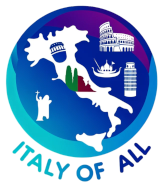The province of Trapani, located on the western tip of Sicily, Italy, is celebrated for its captivating landscapes, rich history, and vibrant cultural heritage. With a coastline that stretches along the Mediterranean and includes both rocky cliffs and long sandy beaches, Trapani is a region of remarkable natural beauty and biodiversity.
Geographically, Trapani’s terrain is diverse, featuring flat coastal plains, salt pans, and rugged mountainous areas, notably the Egadi Islands and the peak of Mount Erice. The province is also known for its distinctive salt marshes, which are important for salt production and as a habitat for migratory birds, such as flamingos.
Historically, Trapani has been a significant maritime hub since antiquity, initially established by the Elymians. It flourished under various dominations, including the Phoenicians, Carthaginians, Romans, Arabs, and Normans, each leaving a distinct mark on the region’s culture and architecture. Historical highlights include the medieval town of Erice, located on a hilltop with ancient walls and a castle, and the historic city center of Trapani, which exhibits a blend of architectural styles from Gothic to Baroque.
Culturally, Trapani boasts a rich tradition of folklore, music, and festivals. The Procession of the Mysteries of Trapani, one of the oldest continuously running religious festivals in Europe, takes place during Good Friday and involves a 24-hour-long procession featuring twenty wooden sculptures depicting scenes from the Passion of Christ. The region is also known for its traditional crafts, including coral work and ceramic production.
Cuisine in Trapani reflects its coastal location and agricultural richness, with a strong emphasis on seafood and simple, fresh ingredients. Signature dishes include “Couscous alla Trapanese,” influenced by North African culinary traditions, and “Pesto Trapanese,” a pasta sauce made with tomatoes, almonds, and basil. The province is also known for its Marsala wine, a fortified wine that originates from the city of Marsala.
Economically, Trapani’s economy is traditionally anchored in fishing, agriculture, and salt production. In recent years, tourism has grown to become a significant sector, driven by the area’s historical sites, natural beauty, and gastronomic reputation. The province is also involved in renewable energy projects, particularly wind power, which take advantage of its windy coastal conditions.
Despite challenges such as economic diversification and the preservation of its cultural and natural landscapes, Trapani is actively working to leverage its historical assets and natural resources to promote sustainable development. Efforts include enhancing the tourism infrastructure and promoting eco-tourism initiatives that respect the environment and contribute to the local economy.
Overall, the province of Trapani offers a compelling mix of natural beauty, historical depth, and cultural vibrancy. Its commitment to preserving its unique heritage while fostering economic growth ensures its continued significance as a distinctive and valuable region in Sicily.
Comuni in Trapani Province:
